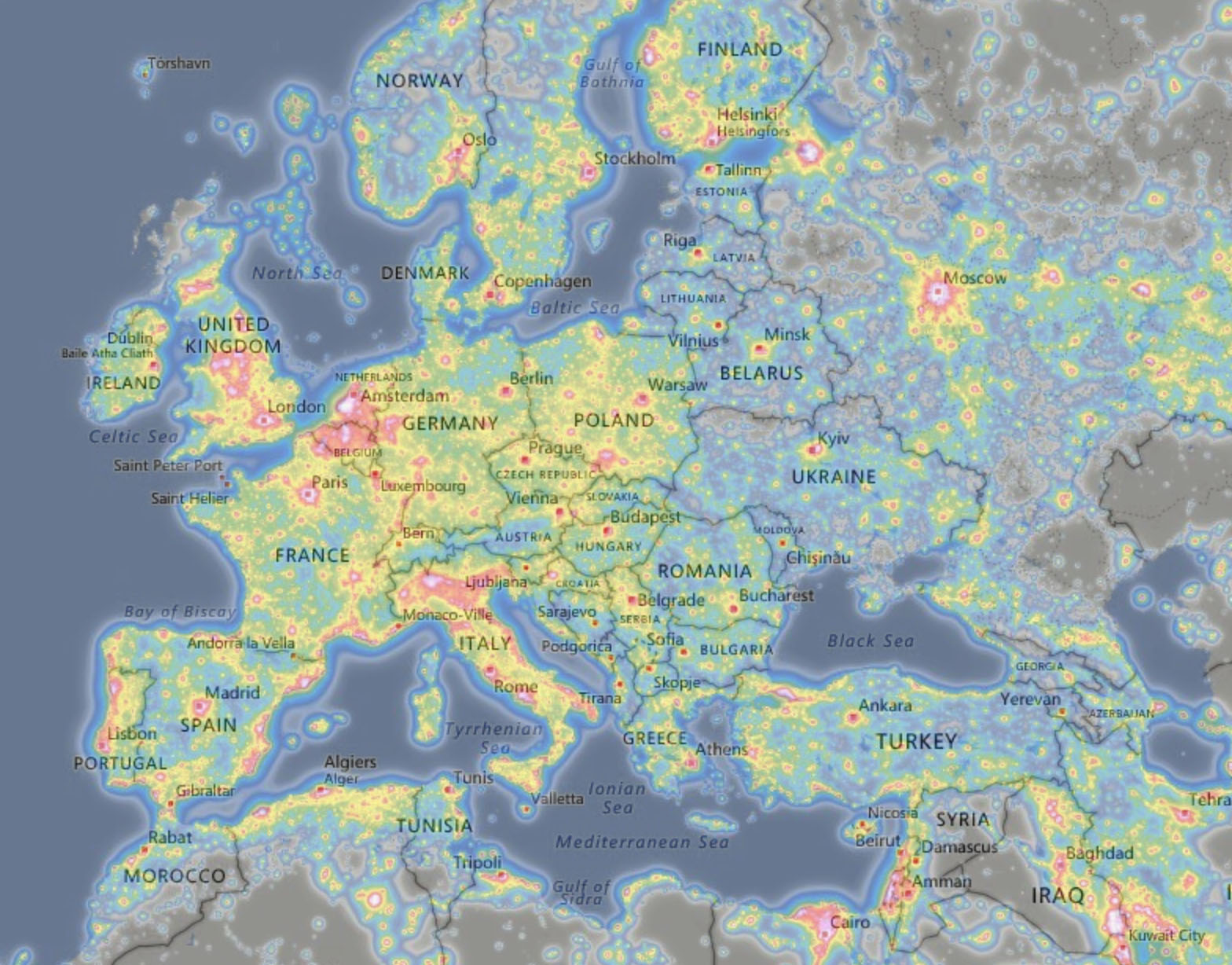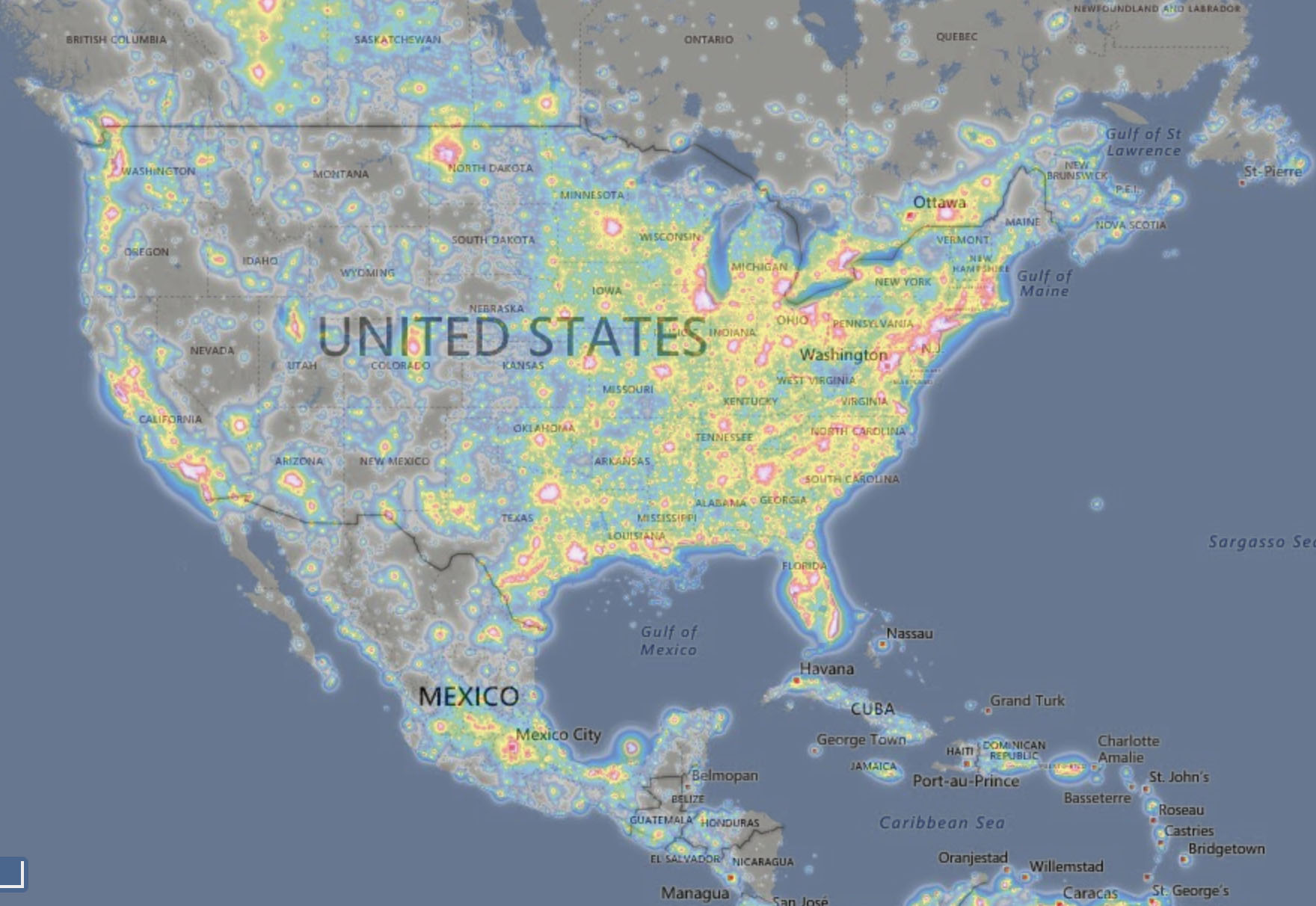So, Starlink is happening...
June 2, 2019
A few people have asked me for my thoughts on SpaceX's global high-speed internet service--literally "global" in that there will eventually be a constellation of satellites, numbering in the thousands, launched into LEO to support the entire system, and anyone just about anywhere on the planet should be able to access it.
As someone who spends a decent amount of time under the stars, taking very long exposure images of deep sky objects...I don't have a problem with Starlink. Starlink is just one more global data provider, along with Orbcomm and half a dozen others currently in orbit, and several more that appear to be duplicates of Starlink--OneWeb/Boeing is in the works, and Amazon is planning another.
There are thousands of satellites orbiting our planet right now, and I see them all the time. I rarely image at less than 2-minute exposures, and depending on the narrowband filters I'm using I will go as high as 30-minute exposures for a single frame. The chances that something in the sky passes in front of my field of view are high. Depending on the focal length/FoV you're using you may never see them--long FL, very small FoV. Wide-field long exposure astro-imaging will probably pick them up.
Just to settle some questions I keep seeing: four of the sixty Starlink satellites currently in orbit are "misbehaving" according to SpaceX President Gwynne Shotwell--she said this at a talk at MIT a couple days ago. SpaceX is working on those, and they're the four you see at dawn and dusk without a telescope. I am assuming that when any number are properly working you won't be able to see them at all. These 60 are also running a bunch of tests, ion-thruster burns to maneuver in orbit and all that. So I expect this--right now--is the worst as far visibility goes.
And then there's the Elon Musk statement that the ISS has lights. And yes, when the International Space Station passes overhead what you're seeing is the sun reflecting off the solar arrays. Not lights. However the ISS does have lights--and is just visible through a camera or telescope when they are on. But they only use them when astronauts/cosmonauts go out to maintain components, change batteries, etc., and that's not that often, so using the ISS as an example of what's in store for astronomers isn't a fair comparison on any side. It's massive and much brighter than these tiny Starlink sats, and there's only one of them--not thousands.
I get why astronomers are angry, especially the wide-field survey scopes that will probably have to do some fancy stuff to remove the growing number of satellites in any frame. I also understand the proponents with the argument that 3 billion people don't have internet access, and that most of the Earth doesn't have coverage at all without specialized and expensive satellite gear.
At the end of the day, we live on a planet with an atmosphere with narrow windows of true astronomical night and crappy weather some of the time (or a lot of the time depending on where you live). Because of urban lighting 1/3 of all humans, roughly 2.5 billion, can't even see our own galaxy, the Milky Way. If you're against this from the clear skies side, light pollution from expanding cities is a far bigger problem for most people. (https://www.lightpollutionmap.info)


